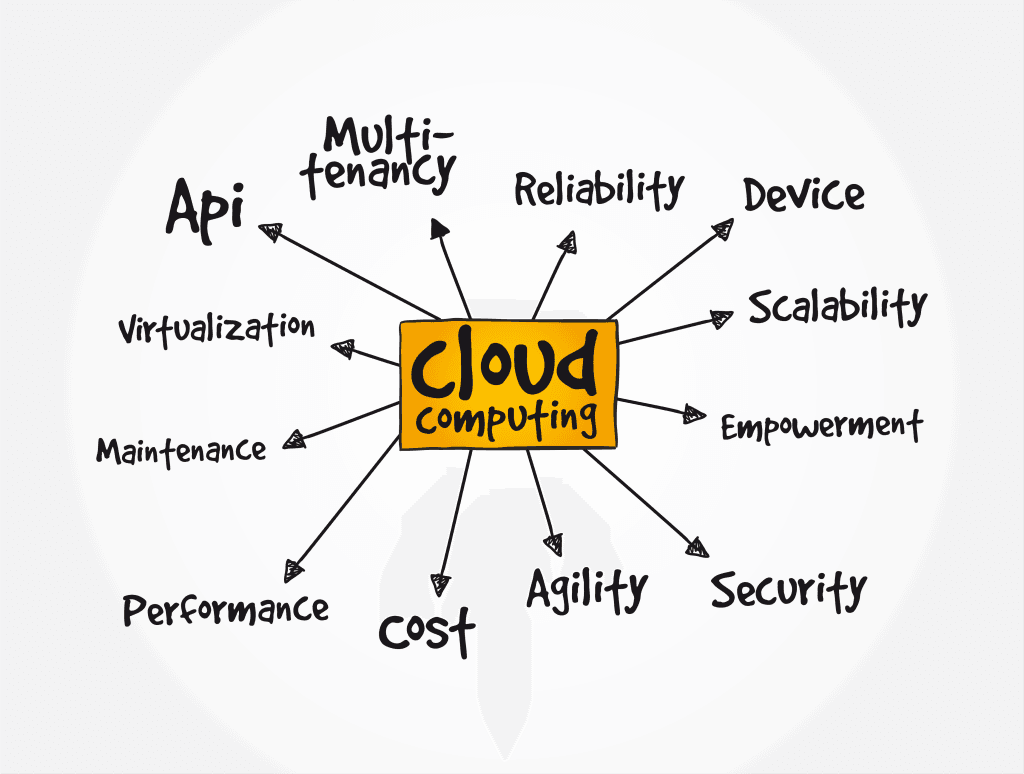
Bury These Office Frustrations in 2023: Tech Nightmares to Leave Behind
In this short blog, we’ll review the exact technologies that have the most considerable negative impact on the productivity of a business. Let’s get started!

The cloud having the option to “rent” someone else’s resources instead of having your equipment, server room, network, etc. Someone else has bought the equipment, building, and staff to maintain everything. Think Amazon and Microsoft.
So your data and resources aren’t exactly sitting in the air as the cloud implies. It’s somewhere physically in the world, a highly secure, maintained data center. Since you cannot physically access this place like you would your equipment in an on-premise environment. You need to have the internet to access it remotely. Hence, the reason we call it the cloud.
The benefit is that you can choose what services you want to “rent.” Such as Infrastructure-as-a-Service (IaaS), which removes the need to own your physical hardware like servers and network switches. Or Software-as-a-Service (SaaS) delivers software via the cloud with all of the necessary infrastructure and platform management handled by the vendor or publisher.
Now we understand that cloud integration brings together different cloud-based applications and services to create a more cohesive system. As business models and technology evolve, so must how we integrate our systems and data. The cloud has become vital to this process, offering organizations a flexible and scalable way to connect their applications and data sources.
So why would you need the cloud? Can you rely on it? Is it secure, and is it worth it?
Cloud integration can help you reduce your IT costs. Businesses can use fewer resources and improve efficiency when different applications are integrated. One of the best things about the cloud is that you only pay for the resources you use.
For example, most traditional businesses purchase their equipment. Let’s focus on just one piece, like the Server. It can be hard to decide on the specs, how much RAM, HDD space, and CPU power you need.
What if it’s too much or too little? What if your business grows rapidly or goes out of business? What do you do about your existing equipment? How do you deal with repairs, upgrades, or downtime?
The cloud alleviates these issues because you can pay for a virtual server for the exact amount of resources you need. And forget repairs or replacing equipment; the cloud provider is responsible for that. If something goes out, you wouldn’t even know because there is no disruption on your end.
As your business grows, it becomes increasingly important to have a scalable infrastructure that can handle increased demand. The cloud provides an excellent platform for businesses to grow their operation.
If you need to add more capacity or users, you can do so quickly and easily without buying new hardware or software. It enables you to scale up or down at the click of a button—no wasted resources.

Cloud integration gives you the flexibility to quickly adapt to changing business needs. Connecting your on-premise and cloud-based systems allows you to easily add or remove applications and data sources as your business requirements change. This can help you respond quickly to market changes and stay ahead of the competition.
When it comes to data security, integrating with the cloud can be a massive benefit for your business. The cloud provides a secure and accessible way to store and share data, making it an ideal solution for businesses that must keep their data safe and secure.
By integrating with the cloud, your business can take advantage of the many security features that the cloud offers, including data encryption and user authentication. In addition, the cloud can also provide you with a way to back up your data in case of an emergency.
Integrating with the cloud can help your business keep its data safe and secure while providing a way to backup and access your data in an emergency.
One of the most significant benefits is the increased reliability of the cloud. With on-premises systems, it can take a long time to get things back up and running if something goes wrong with the hardware or software.
Think about ordering parts, shipping, installation, tech availability, data restores, etc. But with the cloud, there is no equipment downtime. The cloud is designed to provide users with a reliable and redundant infrastructure.
If one server goes down, another can take its place without losing data or service.
Overall, cloud integration can benefit businesses of all sizes and help you gain a competitive edge in today’s fast-paced business environment. Integrating with a cloud solution can be complex and time-consuming, but the benefits are worth the effort. Not to mention a 24/7 99.99% uptime.
If you are considering a hybrid cloud solution for your business, partnering with a reputable and experienced IT provider like Superien Technology. We can help you design and implement a cloud solution that meets your business needs.
Whether that is fully migrating to the cloud or a hybrid solution with your current on-premise environment, you can contact Superien, based in Portland, OR, to learn more about how we can help you take advantage of these benefits.

In this short blog, we’ll review the exact technologies that have the most considerable negative impact on the productivity of a business. Let’s get started!

With news of major security breaches becoming increasingly common, customers are left wondering how their personal data can remain safe. It’s become clear that businesses need to take cyber security seriously; if not, the potential for incurring extensive costs and damaging a company’s reputation is high.